| |
| A B O U T T H E C O N F E R E N C E |
|
Based on the huge success of the first two conferences, SDTConf 2006 and SDTConf 2007, we have decide to organize this conference again.
The theme for this conference is Simple Design and Testing. We are hoping to have intense discussions about designing and testing aspects of any software project. The theme is broad enough so that the participants can have diverse discussion topics and still feel they have learnt something at the end of the conference.
The conference is not just limited to discussions, we also have a lab available for folks who want to participate in hands-on-sessions.
|
H O W O P E N S P A C E W O R K S 1
|
OpenSpace is a small set of rules that allow groups of people to interact in a simple, productive, organized way to create valuable dialogs that address the participants' most important issues.
Open Space Technology (OST), created by Harrison Owen, is a self-organizing practice that releases the inherent creativity and leadership in people. Open Space is internationally recognized as an innovative approach to creating whole systems change and inspiring the best in human performance.
Open Space runs on two fundamentals: passion and responsibility.
Passion engages the people in the room. Responsibility ensures things get done. Open Space gathers participants in a dynamic group, focused on topics working around a central theme, chosen by you and your fellow participants. This fluid approach allows you, to explore the issues that are crucial to you, your organization and your community, with others that hold the same passion.
You will convene groups around topics for which you have a passion. The topics will be established when we gather at the Open Space opening. During the opening, you will be invited to take responsibility for what you care about. In so doing, Open Space establishes a marketplace of inquiry, anyone can offer topics they care about, want to reflect upon and learn from one another -- to accomplish meaningful work.
You will briefly explain your topic then post the time and place for everyone. Because you care about simple design and testing, and because you have the skills, experiences & insights and motivation, you can make a lot happen.
Is this too abstract? May be some pictures can help.
The Fundamental "Rules" of the sessions that happen during OpenSpace conferences are:
- Whoever shows up is the right group
- Whatever happens is the only thing that could have
- Whenever it starts is the right time
- When it's over, it's over.
To lead an OpenSpace Talk
- Come up with an interesting topic and title for your discussion. (You don't need to develop these before the conference; most of the ideas will come to you during the event.)
- Fill out a schedule Post-It for your topic.
- Place the topic on the schedule.
- If you see topics that have something in common, consider combining them into a single time slot.
- If a significant number of people want to attend your discussion and another discussion in the same time slot, try to trade into another time slot to ensure maximum dialog and participation.
To attend an OpenSpace Talk
- Check the schedule and sign up for a talk or just drop in if you wish
- Use the 'Law of two feet.' If you feel that you are not contributing or benefiting from a discussion, please feel free to move on to something else.
- Allow the discussion convener to steer his or her topic. If you have an opposing opinion that needs a full time slot you should feel free to add your own OpenSpace slot to discuss the topic.
|
| P I C T U R E S F R O M O T H E R C O N F E R E N C E S |
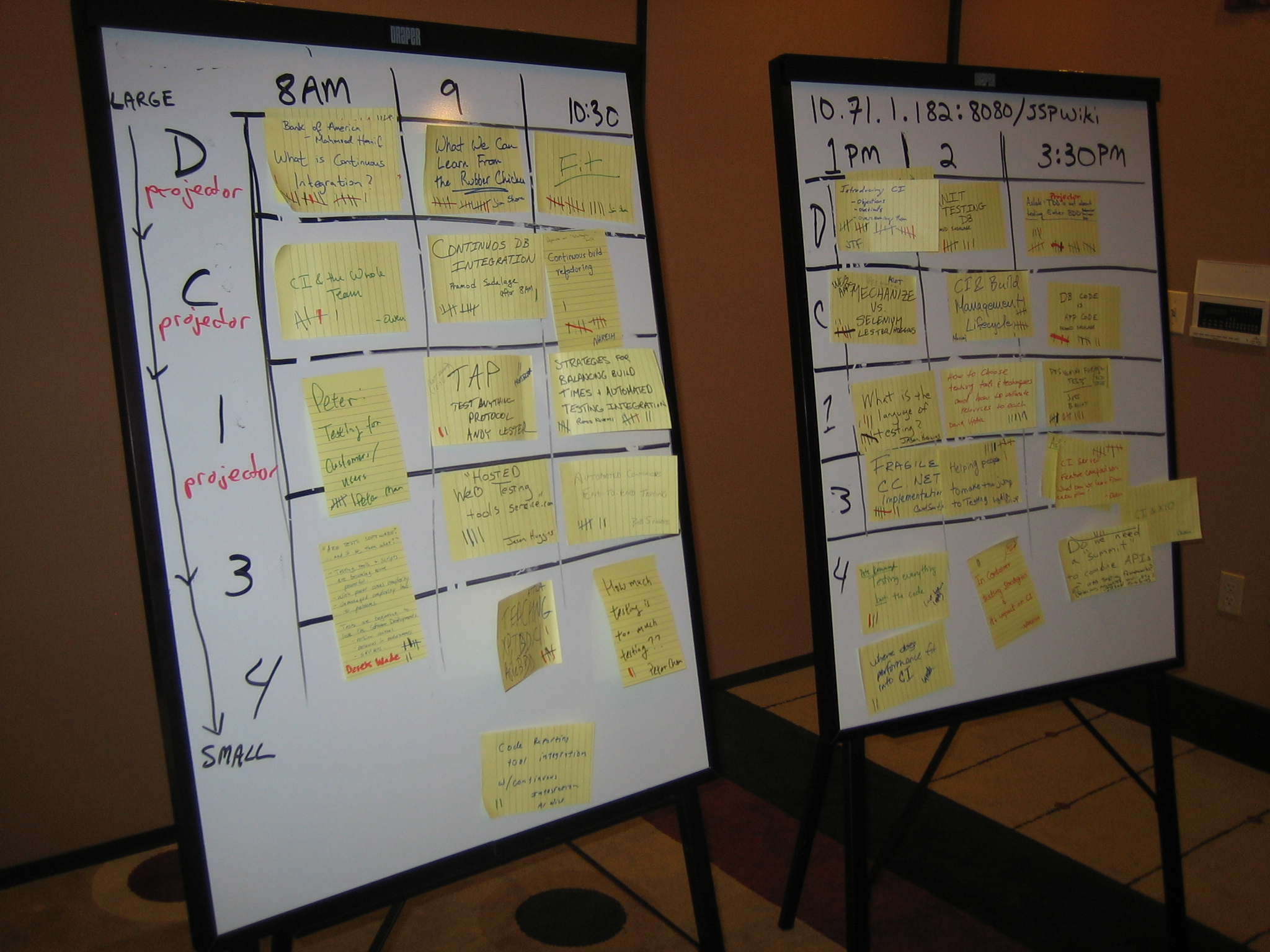
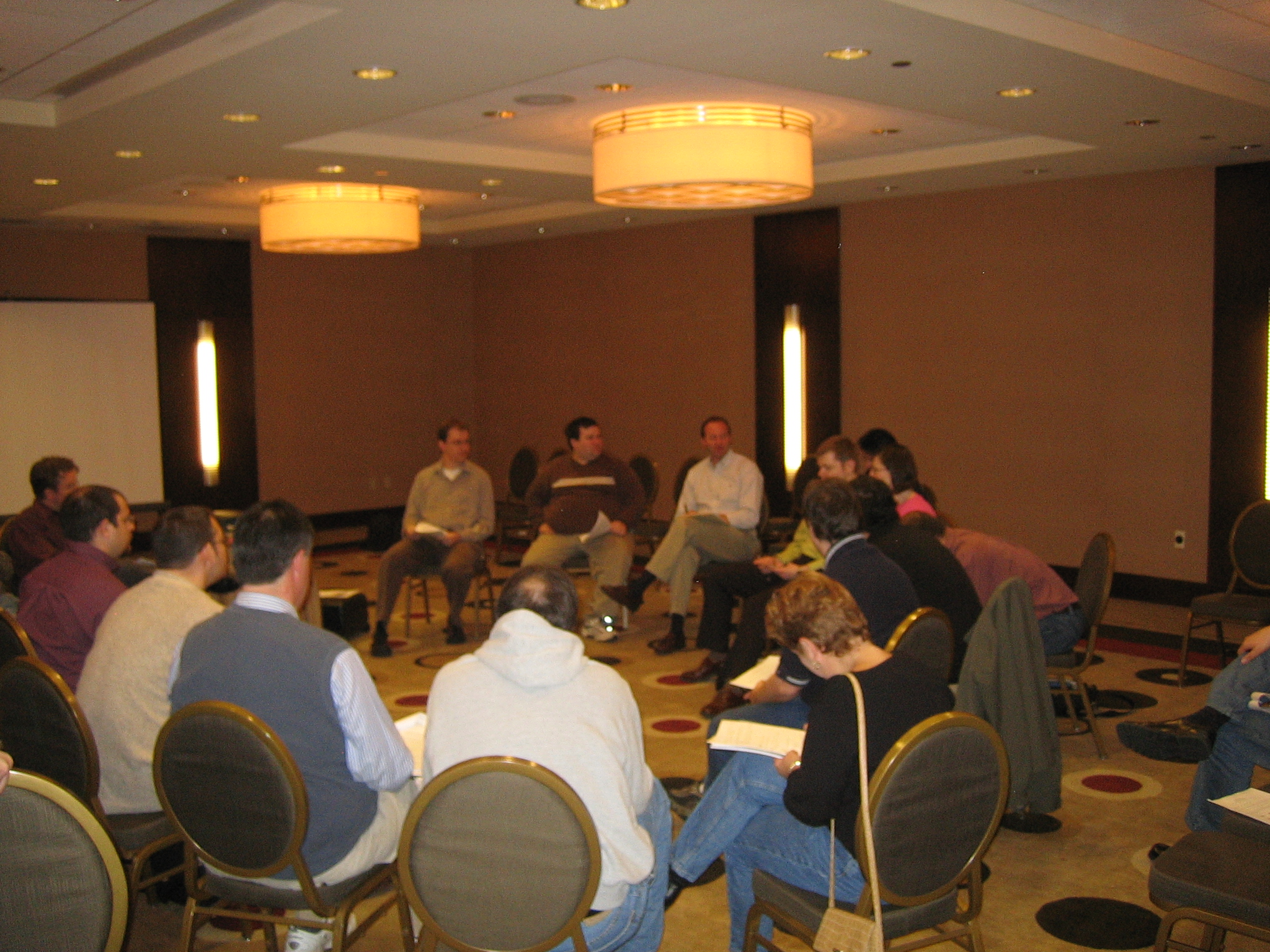
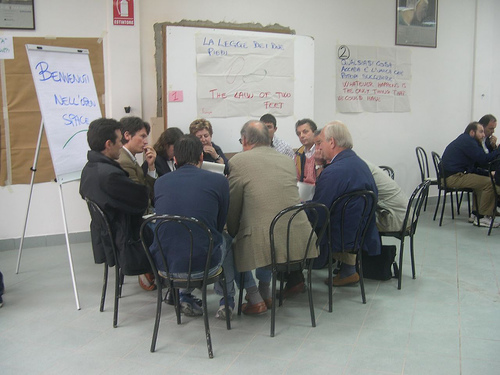
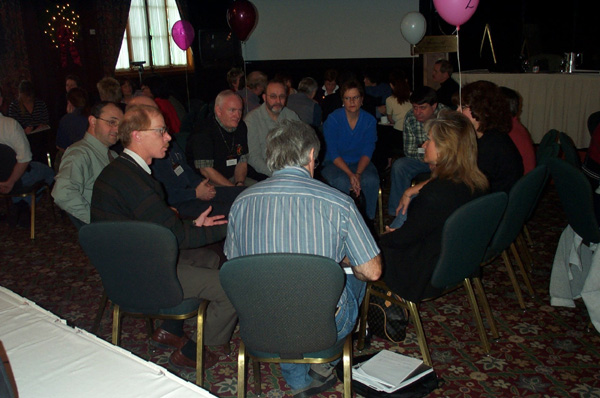
note 1: Adopted, with permission, from Bruce Eckel's Programming the New Web and Agile 2005 conference site.
|
|
|
 |
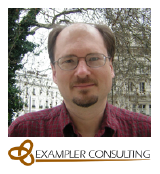
Brian Marick |
|

James Newkirk |
|

Naresh Jain |
|

Micah Martin |
|
| |
|
|
|